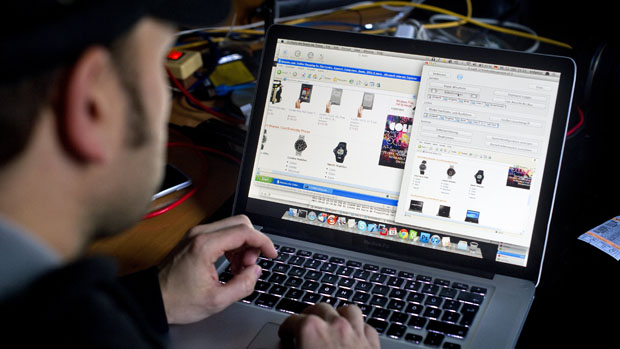Is massive cyber-attack just the first of many?
'Nuclear bomb' that slowed global internet connections is part of growing trend, experts warn

A free daily email with the biggest news stories of the day – and the best features from TheWeek.com
You are now subscribed
Your newsletter sign-up was successful
MILLIONS of internet users were left with slower internet connections last night after what is being described as "the biggest cyber-attack in history".
Access to popular sites such as Netflix was disrupted and there were fears that the attack could spread to web browsing, online banking services and email. Five national police forces are said to be investigating.
The original target was Spamhaus, an organisation based in London and Geneva that helps email providers filter spam. For the last week, it has been subjected to a large-scale 'distributed denial of service' (DDoS) attack, which floods a victim with large amounts of digital traffic to bring down its internet services.
The Week
Escape your echo chamber. Get the facts behind the news, plus analysis from multiple perspectives.

Sign up for The Week's Free Newsletters
From our morning news briefing to a weekly Good News Newsletter, get the best of The Week delivered directly to your inbox.
From our morning news briefing to a weekly Good News Newsletter, get the best of The Week delivered directly to your inbox.
The DDoS attack not only knocked Spamhaus’s website offline, it clogged up servers across the world and slowed down internet connections. Spamhaus has blamed Cyberbunker, a Dutch web host, for the attacks, reports the BBC. But Cyberbunker, which was placed on one of Spamhaus's blacklists last week, is yet to comment.
Matthew Prince, chief executive of web security firm CloudFlare, told The New York Times: "These things are essentially like nuclear bombs. It’s so easy to cause so much damage."
The attacks were said to be peaking at 300 gigabits per second. "That would take down most Fortune 500 companies," said Rik Ferguson, a senior analyst for computer security specialists Trend Micro, according to The Times. “It would even take some countries offline. It's a big, big attack, which is why it’s had repercussions across the rest of the web. I can’t think of an attack bigger than this."
Other experts have warned that attacks of this type are growing in number as well as scale. "Among the reasons for this growth is the development of the internet itself . . and past failures in investigating and prosecuting individuals behind past attacks," a spokesman for Kapersky Lab toldThe Daily Telegraph.
A free daily email with the biggest news stories of the day – and the best features from TheWeek.com
The Financial Times quoted Raj Samani, McAfee’s chief technology officer in Europe, as stating: "We are seeing an increase in volume and sophistication of these types of attacks stemming from all parts of the world."
-
 5 thoroughly redacted cartoons about Pam Bondi protecting predators
5 thoroughly redacted cartoons about Pam Bondi protecting predatorsCartoons Artists take on the real victim, types of protection, and more
-
 Palestine Action and the trouble with defining terrorism
Palestine Action and the trouble with defining terrorismIn the Spotlight The issues with proscribing the group ‘became apparent as soon as the police began putting it into practice’
-
 Why is the Trump administration talking about ‘Western civilization’?
Why is the Trump administration talking about ‘Western civilization’?Talking Points Rubio says Europe, US bonded by religion and ancestry